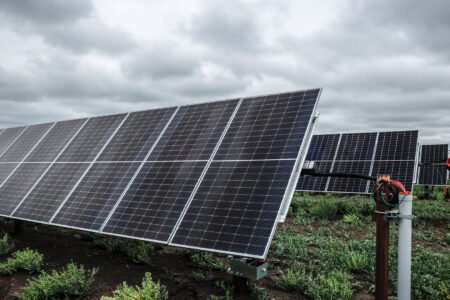
In energy markets, a few years is a lifetime. Fast fluctuations in supply or demand—among myriad other factors—can send oil and gas prices skyrocketing, or into the cellar.
And the results can be dramatic: consider Shell, which just delayed indefinitely a decision on whether to pursue its LNG Canada joint venture project. Of the various liquefied natural gas (LNG) projects proposed for B.C., it was the furthest along.
The promise of LNG—investment, jobs, tax and royalty revenue—now appears illusory.
Fast-growing countries like China and India were recently thought to have insatiable demand for LNG. Demand for electricity was growing quickly and it was clear that building more coal-fired power plants risked choking their citizens with smog. Exporting B.C. LNG would help these countries bring electricity to their people, reduce air and carbon pollution and underpin B.C.’s future prosperity.
How times change.
B.C. is competing with a host of other would-be LNG suppliers. But a new study from the Brattle Group, a respected economic consultancy, suggests North American LNG faces increasing competition from renewable energy.
The study, LNG and Renewable Power: Risk and Opportunity in a Changing World, finds intensifying linkages between global natural gas and electricity markets. The rapid evolution of the renewable energy markets has caught many by surprise.
2015 saw a new record for global clean energy investment, reaching over a third of a trillion U.S. dollars, according to Bloomberg New Energy Finance. In 2014, four times more renewable power capacity was added around the world compared to natural gas-fired power. And while 2014 saw the lowest investment in new natural gas power since 2008, it was the biggest year on record for renewable energy.
Clean energy investment in China was up 17 per cent to US$110 billion last year, and is expected to remain dominant in the years ahead. India saw investment rise 23 per cent to US$10.9 billion—and with some of the most aggressive renewable energy growth targets in the world, India is just getting started.
A big driver of this ongoing growth in renewable energy investment is simple economics. Renewable energy is fundamentally different from energy commodities like LNG because it is driven by technology, and the fuel is free. Commodity prices are a rollercoaster ride of ups and downs. Technologies, on the other hand, follow a predictable price pattern—they get cheaper over time.
Energy consultancy Lazard has found that over the last six years, wind and solar have become increasingly cost-competitive with conventional generation technologies—without subsidies. The cost of wind energy has dropped 61 per cent since 2009. Utility-scale solar energy costs fell a remarkable 82 per cent over the same period. And costs are expected to keep falling.
All of this means B.C. LNG is no sure thing.
The Brattle study sees significant investment risk in proposed LNG export projects in North America. It finds that, over the 20 years of a typical LNG contract, renewable power will quite possibly become cheaper than the LNG sales prices needed to justify the cost of LNG investments—before factoring in a cost on carbon pollution.
For those on the buying end, that makes a 20-year contract for LNG a questionable proposition.
If the cost of renewable power is low enough in the markets we want to sell our LNG into, the Brattle study notes, “it could dampen the attractiveness of North American-sourced LNG as a fuel for electric generation and the willingness of market participants to continue to contract for LNG export infrastructure.”
A warning for global LNG players, then: consider carefully the implications of increasing competition from renewables.
That includes governments—like British Columbia’s—that are banking on LNG to deliver jobs, growth and prosperity.
At the end of 2015 Premier Clark announced the #BCTech strategy, including a CAD$100-million venture capital fund to bolster the tech industry and diversify the economy. The tech sector employs over 86,000 people, pays an average wage 60 per cent higher than the industrial average, and has outpaced the overall provincial economy in eight of the past 10 years.
Clean tech—including renewable energy technologies and services—is in high demand in the same countries where B.C. has been marketing its LNG. To that end, Ontario premier Kathleen Wynne set out on a trade mission in India this week, with the products and services of Ontario’s clean tech companies as a key focus.
It’s possible LNG projects may still proceed in British Columbia. But if they do, they should be the gravy—not the meat and potatoes—of B.C.’s economy.
Merran Smith is executive director and Dan Woynillowicz is policy director at Clean Energy Canada (@cleanenergycan), an initiative of the Centre for Dialogue at Simon Fraser University.









